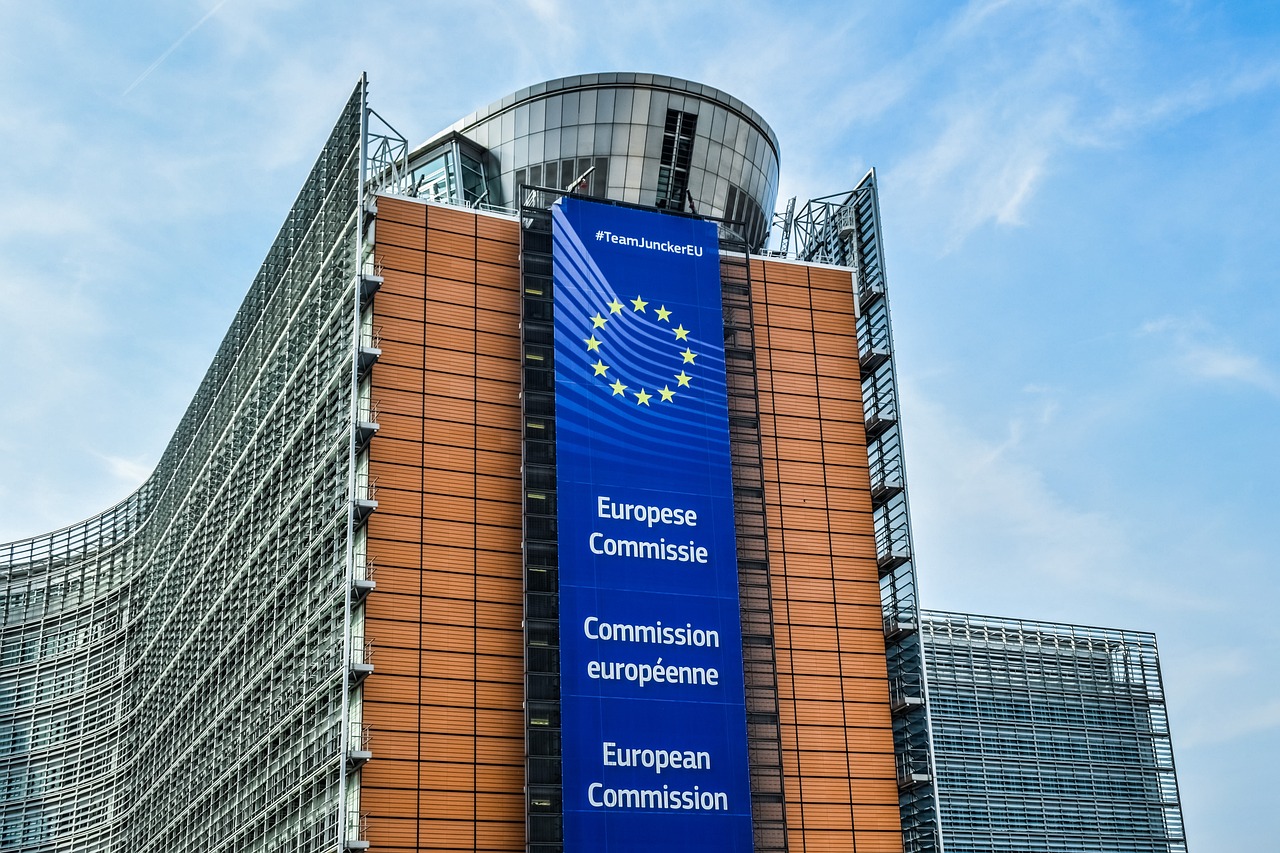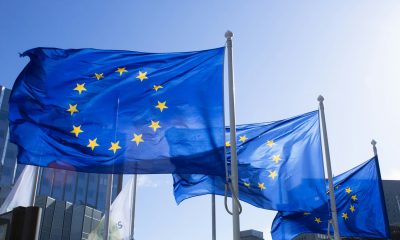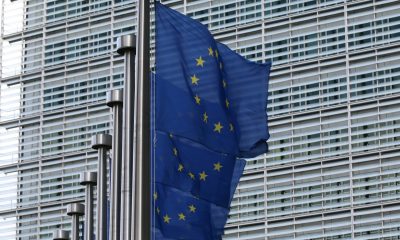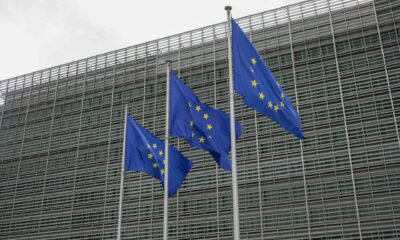Impact Investing
ESRS Close to the Finish Line: On the Way to Sustainability in the EU
The delegated act on Set 1 of the European Sustainability Reporting Standards (ESRS) is on the table. And with it, binding EU standards for sustainability reporting for the first time. The ESRS will determine the sustainability reporting of over 50,000 companies across Europe in the future. these adjustments are intended to increase transparency and uniformity within reporting.

Greenwashing, corruption, and human rights violations – are just three of the aspects that the European Sustainability Reporting Standards (ESRS) are intended to prevent. The clear reporting requirements are intended to close the gaping gap in uniform regulations across Europe and significantly improve production and working conditions by creating transparency. On July 31st, 2023, the European Commission adopted the final delegated act after a public feedback period.
Twelve finalized ESRS are now available, divided into two overarching standards on sustainability issues and ten topic-specific specifications on environmental, social, and governance (“ESG”) issues. More than 600 comments have been received as comments since the first publication on June 9th, 2023. The good news for companies: The proposed facilitations largely apply in the final version as well.
Read more about ESRS in the EU and find the latest financial news of the day with the Born2Invest mobile app.
Adjustments to materiality and other EU legislation
With the publication of the delegated act, an important step has been taken towards more transparency and consistency on ESG issues. Because while reporting has long been part of everyday life in the financial sector, for example, companies have hardly had to document their environmental, social, and corporate governance efforts up to now. As part of the Corporate Sustainability Reporting Directive (CSRD), the ESRS will determine the sustainability reporting of over 50,000 companies across Europe in the future.
These are the changes:
How the financial materiality of information is to be classified will in the future be based on the corresponding definition in the International Financial Reporting Standards on sustainability reporting (IFRS S1 and S2).
If a reporting entity classifies climate change as an immaterial issue, a detailed explanation is required.
If a reporting entity notes a data point derived from another EU regulation as immaterial, it must explicitly state it.
There is now a requirement to disclose a table of all data points derived from other EU legislation. This table must indicate where the points can be found in the sustainability statement or are marked as “not material”.
ESRS accommodates companies with simplifications
On the one hand, these adjustments are intended to increase transparency and uniformity within reporting and, at the same time, create incentives for companies to advance their own sustainability efforts. In order to further facilitate this process, the Commission has agreed on a further time extension for the first-time submission of particularly challenging information.
The “phasing-in” is intended, for example, to help companies establish a routine within their complex supply chains. The aim is to use the transparency created to encourage companies to coordinate their various partners and locations in the long term in such a way that working conditions become fairer and production more sustainable.
The materiality proviso of individual disclosure requirements has been significantly expanded, and some mandatory disclosures have recently become voluntary. This takes additional pressure off the shoulders of the companies concerned. The adjustments are intended to reduce the reporting burden and make it easier to implement the standards initially. The voluntary disclosures include the transition plan for biodiversity and ecosystems (ESRS 4), the explanation of why certain sustainability topics (exception: climate change) are classified as non-material, and information on non-employees in ESRS S1 (adequate wages, social protection, health and safety).
Where do we go from here with the ESRS?
Once the delegated act has been adopted, a two-month review period (with a possible two-month extension) by the European Parliament and the Council of the European Union begins. Once this process is complete and none of the co-legislators object, the delegated act will then enter into force from January 1st, 2024.
In parallel, the European Financial Reporting Advisory Group (EFRAG) is working on further guidelines to support the application of ESRS. In terms of content, the focus is on how companies can correctly assess materiality and include information from the value chains in their reports. A first draft of the guidance on materiality analysis is now already available. In addition, EFRAG is setting up an access point for ESRS stakeholders to ask questions about its application.
Entities that are already required to file non-financial reports are required to apply ESRS for the 2024 financial year. All others have one year longer. However, this does not mean that they should wait until then to revise their own processes. Even now, it may be worthwhile to prioritize compliance with the obligations and look for ways to close previous gaps.
For more supply chain transparency, for example, it makes sense to adapt contracts with suppliers so that sustainability standards are made mandatory. With standardized data collection methods, companies not only collect reliable figures for upcoming reports but can also reliably plan their own resources and calculate costs. Last but not least, modeling or the involvement of experts can be used to better assess future impacts on a company’s own sustainability performance.
__
(Featured image by dimitrisvetsikas1969 via Pixabay)
DISCLAIMER: This article was written by a third party contributor and does not reflect the opinion of Born2Invest, its management, staff or its associates. Please review our disclaimer for more information.
This article may include forward-looking statements. These forward-looking statements generally are identified by the words “believe,” “project,” “estimate,” “become,” “plan,” “will,” and similar expressions. These forward-looking statements involve known and unknown risks as well as uncertainties, including those discussed in the following cautionary statements and elsewhere in this article and on this site. Although the Company may believe that its expectations are based on reasonable assumptions, the actual results that the Company may achieve may differ materially from any forward-looking statements, which reflect the opinions of the management of the Company only as of the date hereof. Additionally, please make sure to read these important disclosures.
First published in HAUFE. A third-party contributor translated and adapted the article from the original. In case of discrepancy, the original will prevail.
Although we made reasonable efforts to provide accurate translations, some parts may be incorrect. Born2Invest assumes no responsibility for errors, omissions or ambiguities in the translations provided on this website. Any person or entity relying on translated content does so at their own risk. Born2Invest is not responsible for losses caused by such reliance on the accuracy or reliability of translated information. If you wish to report an error or inaccuracy in the translation, we encourage you to contact us.

-

 Biotech6 days ago
Biotech6 days agoVytrus Biotech Marks Historic 2024 with Sustainability Milestones and 35% Revenue Growth
-

 Crowdfunding2 weeks ago
Crowdfunding2 weeks agoColombia Approves Terrenta’s Crowdfunding Platform for Real Estate Financing
-

 Crypto16 hours ago
Crypto16 hours agoRipple Launches EVM Sidechain to Boost XRP in DeFi
-

 Africa1 week ago
Africa1 week agoCôte d’Ivoire Unveils Ambitious Plan to Triple Oil Output and Double Gas Production by 2030
























